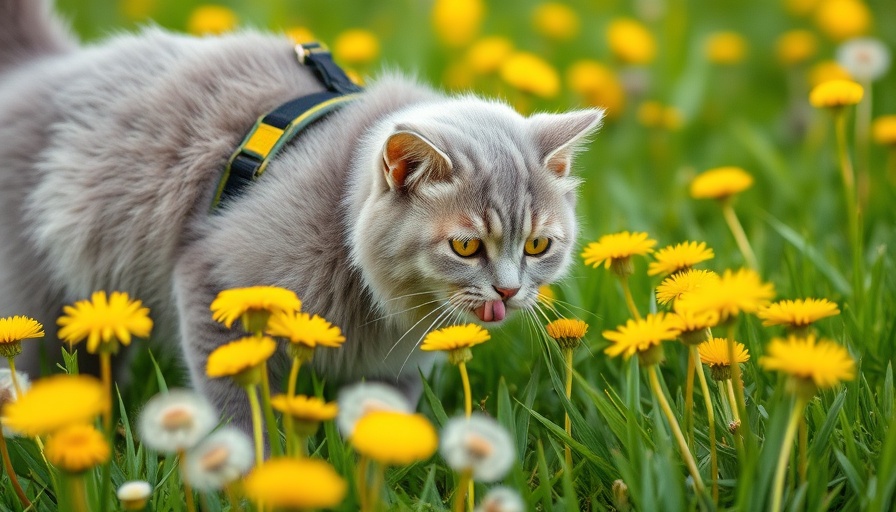
The Flea Dilemma: Understanding the Enemy
Fleas, the uninvited guests in your cat's fur, have been a troublemaker for cat owners everywhere. These small parasites, called Ctenocephalides felis, can wreak havoc on your feline's health and comfort. Fleas are about an eighth of an inch long and make their home among your pet's fur, feeding on their blood. The result? Irritation, itching, and possibly severe skin conditions. Pet parents often spot fleas by noticing tiny black specks, known as flea dirt, which are actually flea feces mixed with digested blood. It’s vital to understand how these pests affect your cat’s well-being, as their presence can lead to serious health issues such as anemia and tapeworm infections.
Why Opt for Natural Flea Treatments?
The desire for a more holistic approach to pet care is growing rapidly among cat owners. Many are turning to natural flea treatments, believing they are safer and gentler alternatives to traditional commercial products. However, it’s important to note that while some natural remedies can repel fleas, they typically do not kill them. Moreover, the effectiveness of these solutions varies widely. Consulting with a veterinarian before trying any home remedy is critical—your cat’s safety and health should always come first.
Effective Natural Remedies: What Works?
Among the various natural remedies, you might consider essential oils, diatomaceous earth, and even homemade sprays. While not all options have scientific backing, several pet owners report positive outcomes with the following:
- Essential Oils: Oils like lavender, cedarwood, and peppermint are believed to ward off fleas. However, do check with your vet for safe dilutions—some oils can be harmful to pets when used incorrectly.
- Diatomaceous Earth: This natural powder can be sprinkled in your home to dehydrate and kill fleas. Ensure you use food-grade diatomaceous earth, as it’s safer for pets and humans.
- Homemade Flea Sprays: Many opt for vinegar or lemon-based sprays. Diluting these in water and spraying on your cat's fur may help repel fleas. As with any new treatment, conduct a spot test first to avoid any skin irritation.
Preventive Measures: Keeping Fleas at Bay
Prevention is better than treatment. Regular grooming, maintaining cleanliness in your home, and washing bedding frequently are proactive steps to deter fleas. Vacuum your house regularly, especially in areas where your cat lounges or sleeps, eliminating flea eggs and larvae before they become a problem.
Counterpoints: Why Natural Remedies Aren’t Always Enough
While the appeal of natural treatments is strong, experts suggest that relying solely on them may lead to longer-term flea infestations that can be harmful to your cat. Research indicates that commercial preventive products are more effective in eradicating fleas completely. Pesticides in these products have evolved to safely control flea populations while posing low risk to your pet. Discussing your flea control options with a veterinarian ensures you make informed decisions that prioritize your feline companion's health.
What to Look For in a Treatment Plan
Selecting a flea treatment involves balancing safety and effectiveness. When evaluating options, consider your cat's age, health status, and lifestyle. Brands recognized for their efficacy, such as those containing targeted insect growth regulators, can be beneficial. Additionally, your vet can guide you toward the best products suited for your feline friend. Sending your beloved pet to play or nap without discomfort is what we all desire!
Conclusion: A Call to Action for Caring Cat Owners
As a loving cat parent, your responsibility is to keep your furry friend safe and healthy. If you suspect fleas or are considering starting a natural treatment, consult with your veterinarian first to personalize a plan that fits your cat's needs. Practical measures can help create a flea-free environment, enhancing both your cat’s comfort and your peace of mind. Together, let's ensure every cat enjoys a life free from itchiness and irritation!
 Add Row
Add Row  Add
Add 


 Add Row
Add Row  Add
Add 

Write A Comment